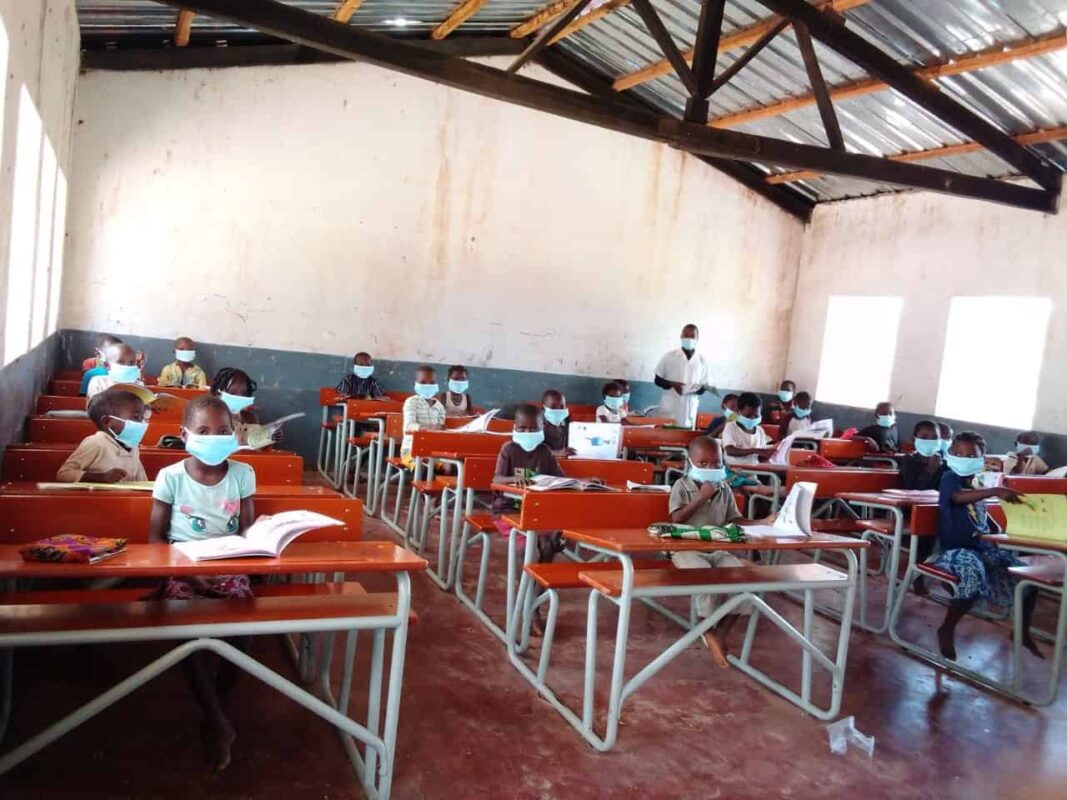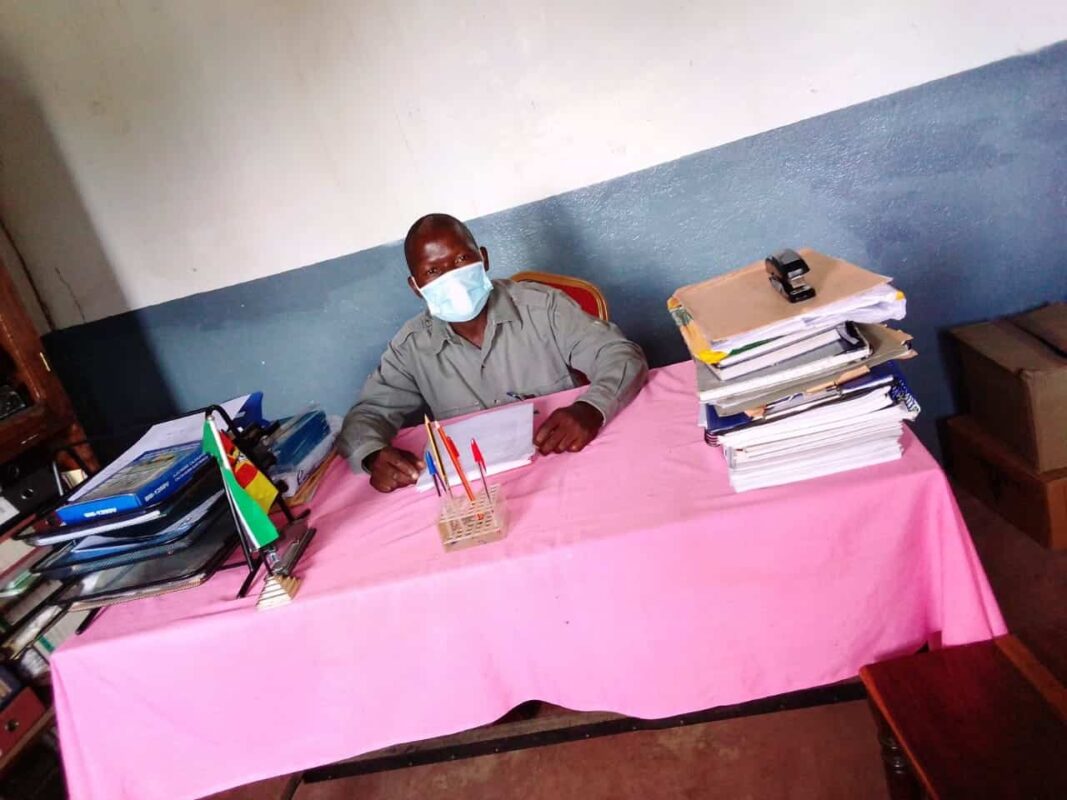After one year of school closures, mais do que 1,000 students who attend Mulhana Primary School are returning to class this academic year with masks, hand sanitizer and usual school supplies.

Em março 2020, when COVID-19 struck Mozambique, aproximadamente 8.5 million students stopped attending in-person learning. The changes presented new challenges on the already underperforming educational systems, as less than 5 percent of Mozambican third graders reach reading comprehension benchmarks and only half of students complete primary school.
During the pandemic while classrooms were closed, Mulhana Primary School strived to equip students with learning materials, and The Mozambique Ministry of Education aired lesson plans on local radio and television stations. But it couldn’t reach some students because only about 10 percent of Mozambique’s population have access to the internet.
“Millions of children worldwide have been forced out of school, and marginalized populations have been the most disproportionately impacted,” says LeAnna Marr, Acting Deputy Assistant Administrator of the U.S. Agência para o Desenvolvimento Internacional (USAID).
Em março 22, Mulhana students lined up for their first day back.
“I couldn’t wait to see my students again,” says Jorge Fernando Alexandre, instructor at Mulhana. “No meu 18 anos de experiência, I cannot recall another time when we didn’t have classes for such a long time.”

Prior to reopening, school leadership reached out to parents, religious leaders and community influencers to raise awareness about safety measures that the school staff would take to prevent the spread of COVID-19. Mulhana Primary was one of the first schools in Mecuburi district to meet the government’s safety protocols.
Now each morning, Mulhana’s 1,115 students wait in line for their temperatures to be taken, wash their hands before entering classrooms, wear masks the entire day, and learn in reduced size learning environments.
Mulhana Primary is one of nearly 2,000 participating schools that work with USAID’s five-year-long bilingual reading program called Vamos Ler!/Vamos ler!. The USAID-funded program implements literacy activities and leadership and community relations training for teachers that seek to improve learning outcomes for students.OMozambique Ministry of Education uses the evidence-based project to make decisions on policies and approaches to early grade literacy.
Now that schools can reopen, USAID can resume its efforts to improve education for Mulhana students.
But Alexandre anticipates that there will be struggles to get students back on track.
“I know that the challenges that we will face this year will not end just because students are back in school. I am sure there will be more hurdles. But for now, I am happy to be back in my school and in a safe environment,” says Alexandre.
Fernanda Matsinhe is a Senior Program Support and Reporting Coordinator with Vamos Ler/Let’s Read.